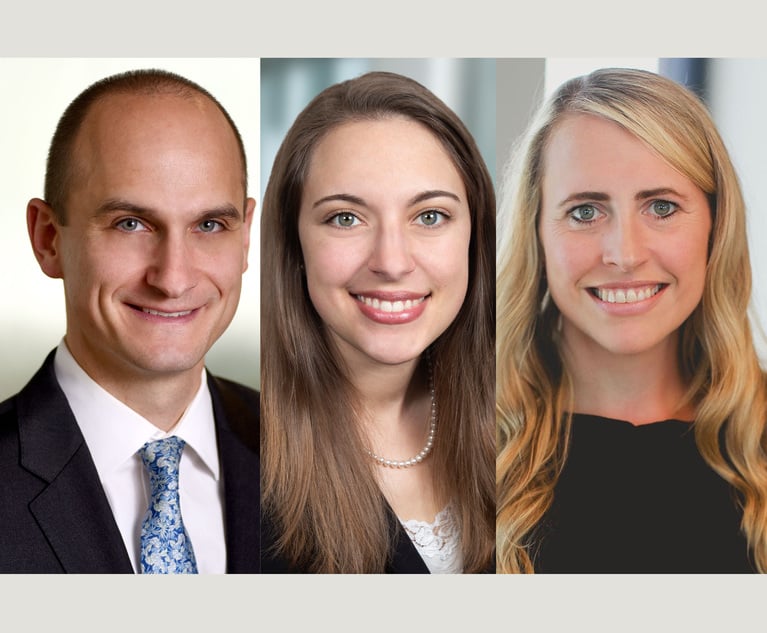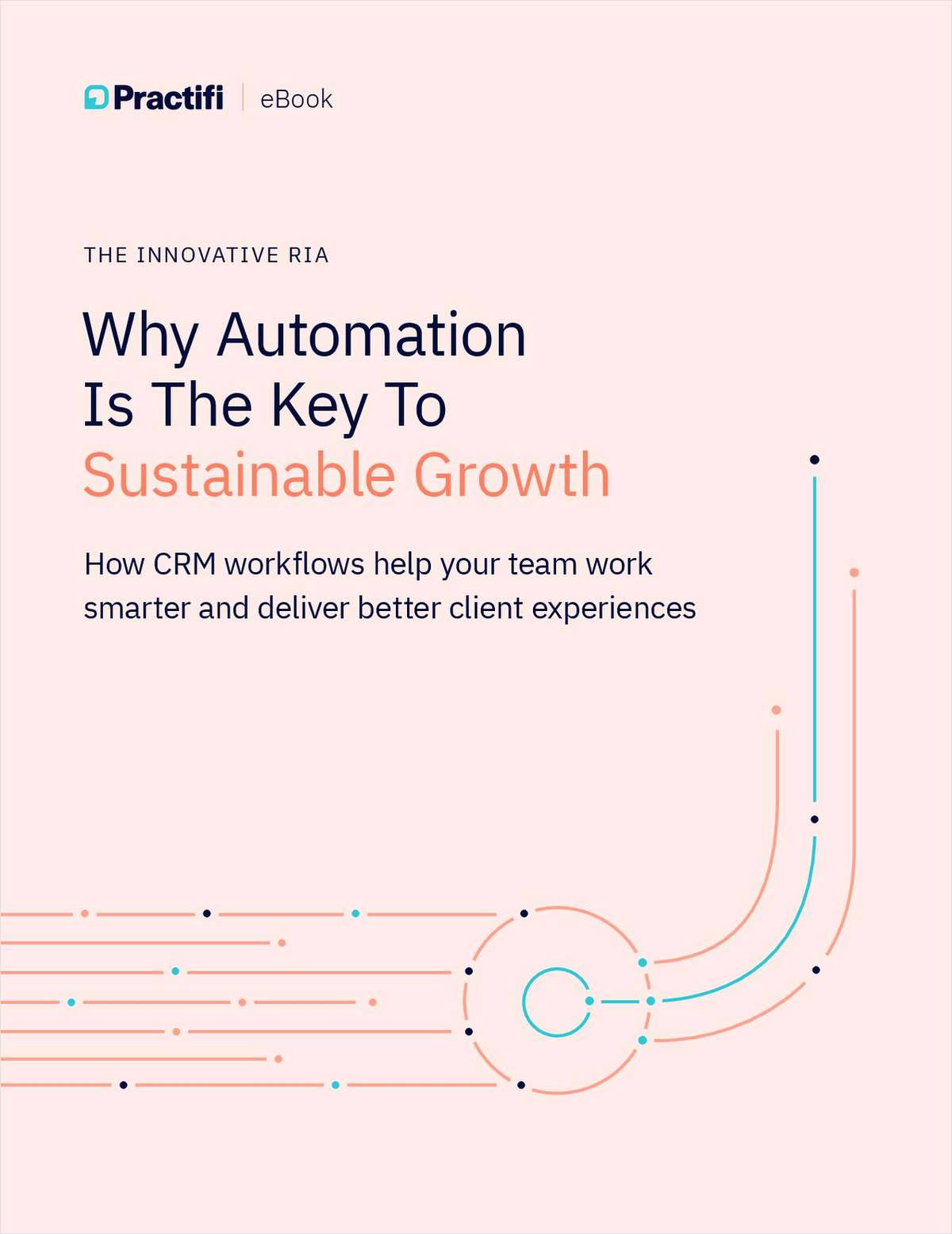 From left: Sheila Hayre, visiting associate professor at the Quinnipiac University School of Law, Congolese artist Toto Kisaku and law students Thai Chhay and Brendan Lawless.
From left: Sheila Hayre, visiting associate professor at the Quinnipiac University School of Law, Congolese artist Toto Kisaku and law students Thai Chhay and Brendan Lawless.Quinnipiac Pro Bono Students Secure Asylum for Congolese Artist in Life-and-Death Struggle
A Middletown artist from the Democratic Republic of Congo who was nearly executed while incarcerated in his home country is scheduled to find out Thursday in New Jersey if his request for asylum has been granted.
March 08, 2018 at 01:07 PM
6 minute read
UPDATE: Good news came Thursday, March 8, for Democratic Republic of Congo native Toto Kisaku, who appeared at the Newark Asylum Office in Lyndhurst, New Jersey, to hear the disposition of his request for asylum. The verdict? Granted. “I feel very, very peaceful,” Kisaku said by phone this afternoon. “It was very exciting driving to New Jersey—so far away—taking a seat and waiting for the decision. The first thing they did is congratulate me.” The 39-year-old performance artist said he will now have more freedom to travel and connect with people around the country and in Europe to develop and showcase his art, which has drawn international attention for shedding light on the shocking persecution of Congolese children.
A Middletown artist from the Democratic Republic of Congo who was nearly executed while incarcerated in his home country found out this week that his request for asylum had been granted, with the help of students at the Quinnipiac University School of Law in Hamden.
Performance artist Toto Kisaku, 39, fled the Congo in 2015 with his 5-year-old son after escaping secret police, prison and torture at the hands of his countrymen. Represented pro bono by law students and advisers at Quinnipiac, he recalled his ordeal in a phone interview, acknowledging he was followed, apprehended, incarcerated and tortured by Congolese secret police, and was only able to escape with the help of a sympathetic guard who recognized him from his controversial performances.
What attracted the secret police, Kisaku said, was his illumination of a bizarre campaign by religious leaders in the Congo to persecute children accused of witchcraft and sorcery. With government complicity, pastors have been accusing Congolese youth as young as 5 of witchcraft and demanding money from poor families in exchange for exorcisms, he said. Since 2009, Kisaku had been traveling the country spreading the word through live performances about the phenomenon, which he claimed is leaving tens of thousands of young children murdered or homeless as families abandon them.
The premise of the campaign is “fake,” said Kisaku, who is being represented pro bono by a team of law students. “They are trying to get money from poor families, and they preach if you want to have money, you need to give money. They come to your house and try to get you to pay with your house or your car.”
As poor, uneducated families have been extorted and their children abandoned or killed, Kisaku said, the government has been complicit. Despite enacting a law prohibiting accusations of sorcery against children, leaders are not enforcing it, he said. “I decided to do a tour telling the story. It's very, very sad because everything is broken. I began telling the story in [Congolese capital city] Kinshasa about the reality of life.”
Kisaku's performance art, blending musical theater, stand-up comedy, hip-hop and dance, has grown in popularity, reaching international audiences and exposing the Congo's severe wealth inequality. While on a tour of Congolese universities, Kisaku ruffled some feathers. It became evident in 2015 that secret police were following Kisaku, disrupting shows and even persuading some venues to cancel, he said. Agents began closing in on the artist in 2015, forcing Kisaku into hiding with the help of some university students, but he was eventually captured by the secret police, he said. While being held, Kisaku was tortured, witnessed fellow citizens being executed, and quickly realized he had been marked for death.
“He was able to escape because one of the individuals working at that facility—one of guards—recognized him,” said Alaina Louis, a legal intern at Quinnipiac volunteering on Kisaku's case. “He already had tickets to visit the United States in celebration of his son's birthday in January 2016. When he was able to escape, he moved forward with a plan to leave the Congo.”
Kisaku received help from beneficiaries in his home country, and after arriving in the United States, was lucky to be referred to Quinnipiac's pro bono student program, which is supported and enriched by a permissive student-practice rule in Connecticut. In the meantime, he has been working at a gas station to make ends meet.
Student volunteers completed all of the paperwork necessary to seek asylum through the U.S. Citizenship and Immigration Services Division of the Department of Homeland Security. The division's Newark Asylum Office in Lyndhurst, New Jersey granted asylum to Kisaku Thursday.
Program adviser Sheila Hayre, a visiting associate professor of law at Quinnipiac, said decisions often amount to the difference between life and death. “Basically if the decision is positive, he's on the road to becoming a legal resident and citizen, but as you can tell, half of his heart is in the Congo,” she said. “If his petition is denied, he goes before an immigration judge and he'll be in removal proceedings and will have to fight to remain here.”
Hayre acknowledged that, under the administration of President Donald Trump, petitions for asylum have become more restrictive. “Asylum is non-adversarial, but they ask more questions, and some are very probing and tough,” she said. “At this point, asylum law is pretty restrictive, regardless of what the administration has done. You can't just be fleeing death to apply for asylum. You have to show that you've been persecuted. We've seen clients going almost back to certain death because of the requirements.”
Still, Hayre said she was confident Kisaku has established he was persecuted. “His life mission has been to speak out about injustice that is going on in the Congo.”
Legal intern Thai Chhay, who is also working on the case, expressed cautious optimism about Kisaku's bid for asylum prior to Thursday's decision. “It seems to have gone well. The asylum officers seem to be receptive, but we're aware of the challenges,” he said. “We did this pro bono with an established law professor and have over 200 hours doing this case. Parts of me are optimistic, but a part of me wonders about all these other people who don't have representation. It's sort of an ambivalent, bittersweet kind of feeling. You can't guarantee anything. You just do the best you can.”
Kisaku also expressed mixed feelings ahead of Thursday's decision. “For the future, I am in a position where I can do something for my country. But at the same time I don't know if I am happy, because I am sad to be so far from the Congo and far from the people who continue to fight against the government. At the same time, I am in the position that I can do something to inform people who don't know what's happening in the Congo.”
Kisaku's new production, “Requiem for an Electric Chair,” exploring his detention and harrowing escape, is set to be featured at the International Festival of Arts & Ideas on June 22 and 23 in the Iseman Theater in New Haven, Connecticut.
This content has been archived. It is available through our partners, LexisNexis® and Bloomberg Law.
To view this content, please continue to their sites.
Not a Lexis Subscriber?
Subscribe Now
Not a Bloomberg Law Subscriber?
Subscribe Now
NOT FOR REPRINT
© 2025 ALM Global, LLC, All Rights Reserved. Request academic re-use from www.copyright.com. All other uses, submit a request to [email protected]. For more information visit Asset & Logo Licensing.
You Might Like
View All
Apple Disputes 'Efforts to Manufacture' Imaging Sensor Claims Against iPhone 15 Technology

New Partners at Cummings & Lockwood, Carmody Torrance Sandak & Hennessey
2 minute read

DOJ, 10 State AGs File Amended Antitrust Complaint Against RealPage and Big Landlords
4 minute readTrending Stories
- 1New York Latest to Adopt NextGen Bar Exam
- 2People in the News—Jan. 9, 2025—Rawle & Henderson, Armstrong Teasdale
- 3Thinking Outside the RFP: AI’s Impact Beyond Scaling Review Efficiency
- 4Special Series Part 4: The Statutory Guardrails Impermissibly Bind Future Legislatures
- 5New York Court of Appeals Blocks Trump Attempt to Stay Friday Sentencing
Who Got The Work
Michael G. Bongiorno, Andrew Scott Dulberg and Elizabeth E. Driscoll from Wilmer Cutler Pickering Hale and Dorr have stepped in to represent Symbotic Inc., an A.I.-enabled technology platform that focuses on increasing supply chain efficiency, and other defendants in a pending shareholder derivative lawsuit. The case, filed Oct. 2 in Massachusetts District Court by the Brown Law Firm on behalf of Stephen Austen, accuses certain officers and directors of misleading investors in regard to Symbotic's potential for margin growth by failing to disclose that the company was not equipped to timely deploy its systems or manage expenses through project delays. The case, assigned to U.S. District Judge Nathaniel M. Gorton, is 1:24-cv-12522, Austen v. Cohen et al.
Who Got The Work
Edmund Polubinski and Marie Killmond of Davis Polk & Wardwell have entered appearances for data platform software development company MongoDB and other defendants in a pending shareholder derivative lawsuit. The action, filed Oct. 7 in New York Southern District Court by the Brown Law Firm, accuses the company's directors and/or officers of falsely expressing confidence in the company’s restructuring of its sales incentive plan and downplaying the severity of decreases in its upfront commitments. The case is 1:24-cv-07594, Roy v. Ittycheria et al.
Who Got The Work
Amy O. Bruchs and Kurt F. Ellison of Michael Best & Friedrich have entered appearances for Epic Systems Corp. in a pending employment discrimination lawsuit. The suit was filed Sept. 7 in Wisconsin Western District Court by Levine Eisberner LLC and Siri & Glimstad on behalf of a project manager who claims that he was wrongfully terminated after applying for a religious exemption to the defendant's COVID-19 vaccine mandate. The case, assigned to U.S. Magistrate Judge Anita Marie Boor, is 3:24-cv-00630, Secker, Nathan v. Epic Systems Corporation.
Who Got The Work
David X. Sullivan, Thomas J. Finn and Gregory A. Hall from McCarter & English have entered appearances for Sunrun Installation Services in a pending civil rights lawsuit. The complaint was filed Sept. 4 in Connecticut District Court by attorney Robert M. Berke on behalf of former employee George Edward Steins, who was arrested and charged with employing an unregistered home improvement salesperson. The complaint alleges that had Sunrun informed the Connecticut Department of Consumer Protection that the plaintiff's employment had ended in 2017 and that he no longer held Sunrun's home improvement contractor license, he would not have been hit with charges, which were dismissed in May 2024. The case, assigned to U.S. District Judge Jeffrey A. Meyer, is 3:24-cv-01423, Steins v. Sunrun, Inc. et al.
Who Got The Work
Greenberg Traurig shareholder Joshua L. Raskin has entered an appearance for boohoo.com UK Ltd. in a pending patent infringement lawsuit. The suit, filed Sept. 3 in Texas Eastern District Court by Rozier Hardt McDonough on behalf of Alto Dynamics, asserts five patents related to an online shopping platform. The case, assigned to U.S. District Judge Rodney Gilstrap, is 2:24-cv-00719, Alto Dynamics, LLC v. boohoo.com UK Limited.
Featured Firms
Law Offices of Gary Martin Hays & Associates, P.C.
(470) 294-1674
Law Offices of Mark E. Salomone
(857) 444-6468
Smith & Hassler
(713) 739-1250










